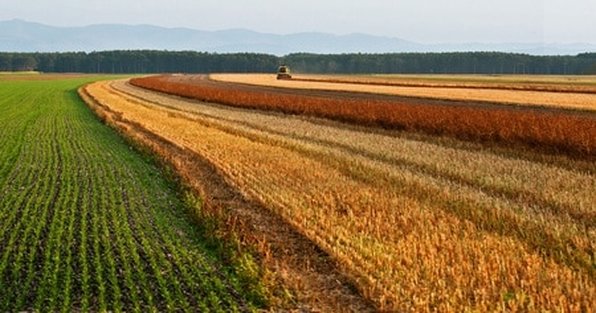“Do not be deceived: God is not mocked, for whatever one sows, that will he also reap. For the one who sows to his own flesh will from the flesh reap corruption, but the one who sows to the Spirit will from the Spirit reap eternal life” (Galatians 6:7-8 ESV).
This passage in Galatians is a classic example of biblical verses that we may diligently highlight in our study, but they then take on a life of their own and we tend to read and remember them out of their actual context. As a result, we may miss their real meaning and the message they have for us.
In the case of Galatians 6:7-8 it is easy to see these verses as purely a comparison and contrast between “sinful living” and “spiritual living.” Viewed this way, Paul’s stress on sowing and reaping seems like a simple exposition on the end results of the lifestyle of a sinful person who reaps the fruits of his or her wrongful actions as opposed to the results of righteous living. The verses have been quoted in this way in many sermons – sometimes with colorful examples such as hypothetical individuals who sinfully “sowed their wild oats then prayed for a crop failure,” as opposed to individuals who were blessed for righteous living.
But that is not really the contrast Paul is making in this passage. The previous verse begins the thought by saying “Let the one who is taught the word share all good things with the one who teaches” (vs. 6). This thought sets the stage for what Paul says in verses 7-8, and those verses are followed in turn by the conclusion of the thought: “And let us not grow weary of doing good, for in due season we will reap, if we do not give up. So then, as we have opportunity, let us do good to everyone, and especially to those who are of the household of faith” (vss. 9-10).
We can see that these verses are not different thoughts because Paul continues the analogy of sowing and reaping throughout the whole passage of Galatians 6:6-10. And when we take the whole passage in its context, we realize that Paul is not contrasting sinful living with spiritual living so much as he is contrasting selfish living with a life of unselfish giving.
That is why the thought begins in verse 6 with Paul talking about those who are taught sharing “all good things” with those who teach. His overall thought, expanded in verses 7-8, is that if we do not share and serve outwardly, we serve only ourselves – we “sow to the flesh.” It is only as we share with and serve others (vss. 9-10) that we “sow to the Spirit” and will eventually reap a reward.
In fact, the only other two places Paul uses the analogy of sowing and reaping in his epistles regarding our behavior are in his letters to the Corinthian Church, and they make exactly the same point: “If we have sown spiritual seed among you, is it too much if we reap a material harvest from you?” (1 Corinthians 9:11) and “Remember this: Whoever sows sparingly will also reap sparingly, and whoever sows generously will also reap generously” (2 Corinthians 9:6).
In all three instances – in 1 and 2 Corinthians and in Galatians 6 – Paul uses the analogy of sowing and reaping to affirm that the seed we sow determines the harvest we receive. Certainly the Bible uses the broader application of the idea of sowing and reaping: “The one who sows righteousness reaps a sure reward” (Proverbs 11:18b), and “whoever sows injustice reaps calamity” (Proverbs 22:8a); but Paul’s use of the sowing and reaping analogy is clearly a specific one dealing with unselfish and generous giving and living.
Such good deeds may have been neglected by the congregations in Galatia as they were caught up in a number of divisions and errors that were consuming their attention and energy. These errors are the focus of most of what Paul discusses in his letter to the Galatians, but we must not miss his point that such doctrinal and moral issues and concerns must not preclude our doing good in the life to which we have been called. Paul’s point is not just regarding the responsibilities of life – that we reap what we sow; but also the opportunities of life – that if we want to reap, we must sow.

 RSS Feed
RSS Feed
